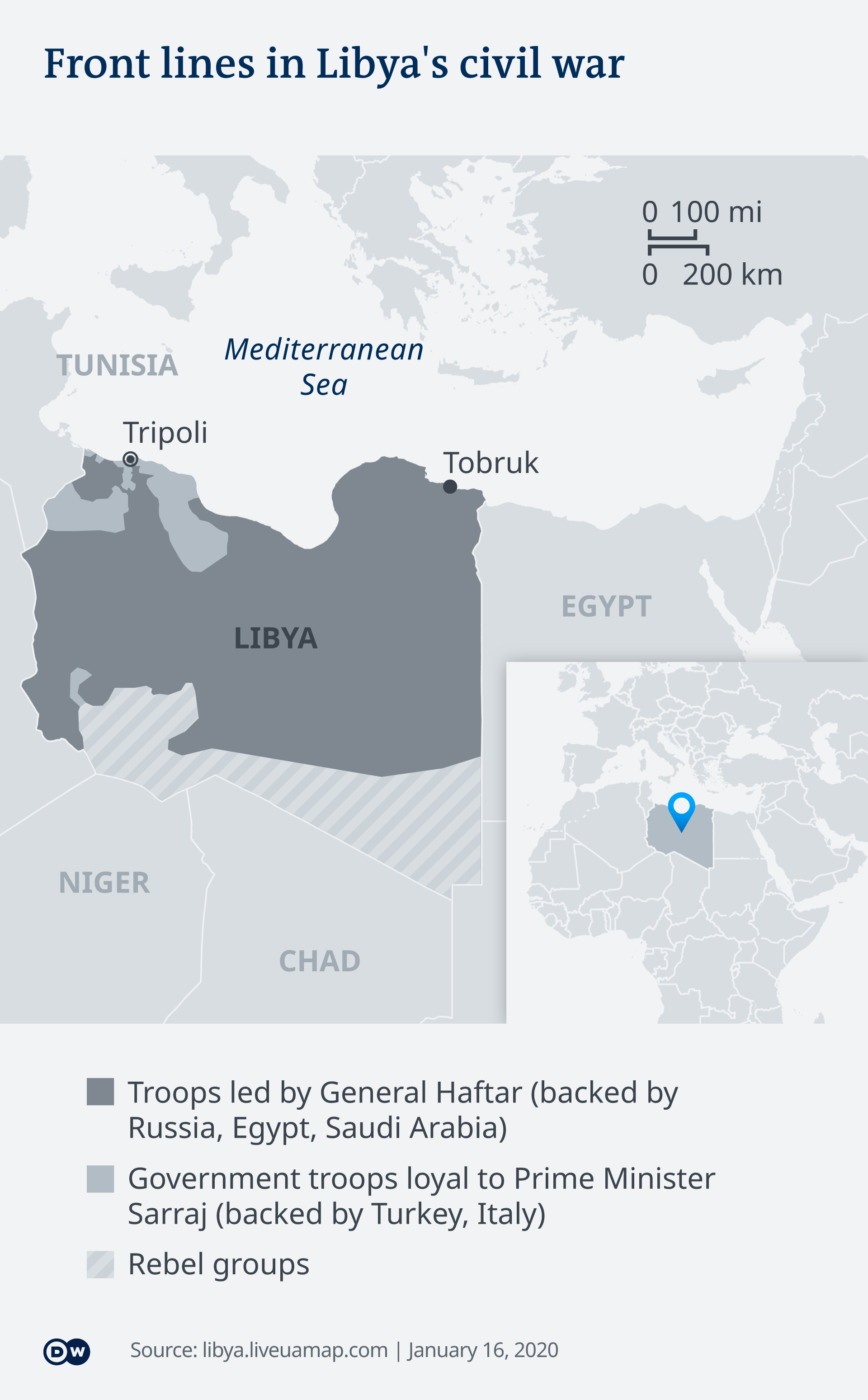EU foreign ministers discuss next steps for Libya
The bloc’s top diplomats are meeting in Brussels for talks on how to implement a peace process in Libya. Italy and Greece said they’re willing to send troops, while Germany has also expressed interest in an EU-mission.

The European Union’s foreign ministers gathered in Brussels on Monday for talks on how to implement a peace process in Libya — and what exact role the bloc should play.
The meeting follows on the heels of a Libya summit in Berlin on Sunday, where the EU vowed to do whatever was necessary to implement a United Nations arms embargo and any ceasefire.
What are they trying to achieve?
- To enforce the arms embargo, the EU is considering relaunching naval patrols in the Mediterranean Sea under Operation Sophia.
- Troops could be dispatched under an EU-flagged mission to monitor any longer-term cease-fire.
- Greece and Italy said they would be willing to send troops, while Germany said it would consider taking part in an EU mission.

‘Someone has to monitor it’
The EU’s chief diplomat Josep Borrell said he supported reviving the EU’s naval mission off the Libyan coast, saying that the EU needs to do more to defend its interests.
“It’s clear that the arms embargo requires high-level control and if you want to keep the ceasefire alive someone has to monitor it,” Borrell said Monday when asked about a possible military mission.
Despite the agreements secured during the summit in Berlin, German Foreign Minister Heiko Maas cautioned that it would not lead to an immediate halt in fighting and that the issue still needs to be discussed in the UN Security Council.
“In this respect, yesterday was only the starting signal that the civil war in Libya could be turned into a political process,” Maas told reporters.
What was agreed in Berlin? World leaders at the summit in Berlin agreed to uphold a UN arms embargo and to end military backing for the country’s warring factions. Foreign powers like Turkey, Russia, France, and Egypt agreed to stop interfering in the conflict in Libya.
What else is on the agenda? The foreign ministers have a tight schedule for their meeting on Monday, with talks also set to cover heightened tensions in Iran and Iraq after the US killed a top Iranian general as well as France’s fight against extremists in Africa’s Sahel region. In response to tensions in the Gulf, Germany and other EU member states have backed calls for a European-led naval mission in the Strait of Hormuz, the French government said.
The Middle East peace process is also up for discussion after Luxembourg Foreign Minister Jean Asselborn argued that the EU should reconsider the recognition of Palestine.
Rescuing Operation Sophia The EU naval mission was initially launched to stop human trafficking and to enforce the UN arms embargo on Libya. The mission also regularly rescued migrants caught in dangerous conditions at sea and was credited with saving over 45,000 people’s lives. The mission collapsed in March 2019 under pressure from Italy’s former populist government due to disagreements about distributing the people who were rescued. Italy’s new government, however, has signaled a softer stance on immigration.
What is the Libya conflict? Since the overthrow of longstanding ruler Moammar Gadhafi in 2011, Libya has been in a state of flux. The UN-recognized Government of National Accord (GNA) under Prime Minister Fayez Sarraj holds the capital Tripoli, but since last April, it has been under sustained attack by rebel general Khalifa Haftar’s Libyan National Army (LNA), which is supported by a rival administration based in the eastern city of Tobruk.
Source: https://www.dw.com/en/eu-foreign-ministers-discuss-next-steps-for-libya/a-52067545